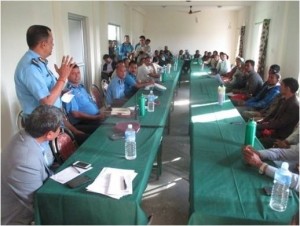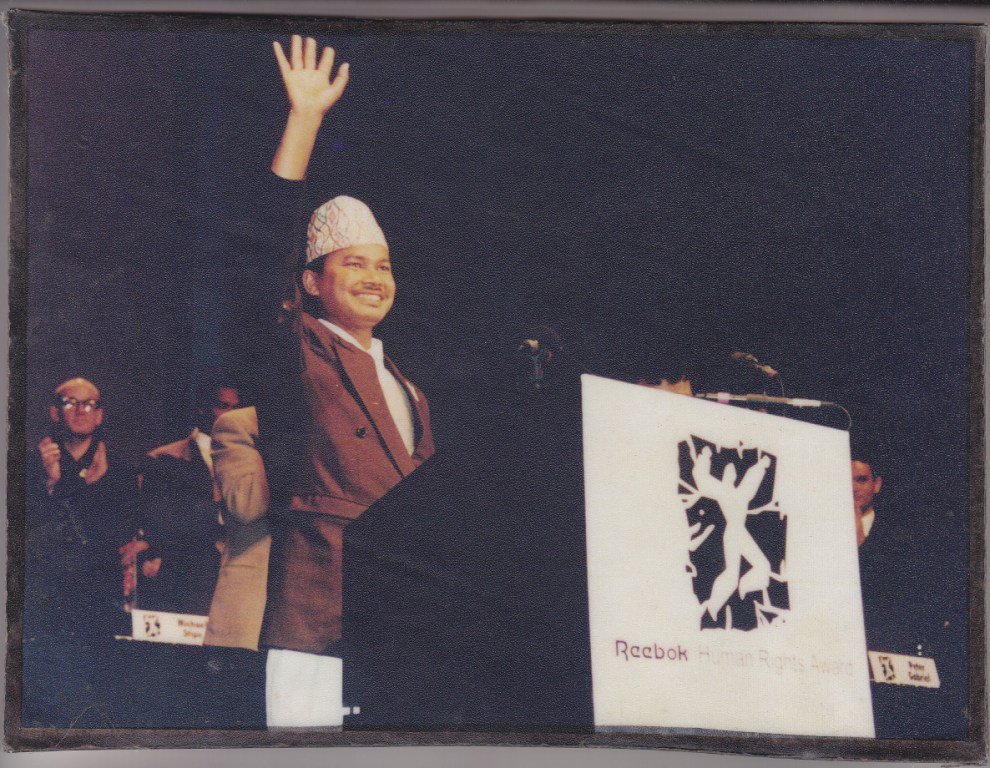Theme 4 Peace, Governance and Human Rights
Background:
Nepal has promulgated a new constitution after 10 years’ long internal armed conflict. The constitution has declared Nepal as a federal democratic republic country which divided it into three level governance structures; federal, province, and local level. All three levels have got elected representatives for government and elected Federal government has been trying to execute the constitution. Due to the transitional phase of executing the constitution, there are still disagreements and debates to exercise rights given by the constitution. Sixty-nine years passed since the General Assembly of the United Nations adopted the Universal Declaration of Human Rights. Human rights standards can be raised with democratic norms and values as well as the rule of law. The Constitution of Nepal (2015) envisions sustainable peace, good governance, development, and prosperity through the federal, democratic, republic system of governance. In addition to civil and political rights, it has also expanded the issues of economic, social, and cultural rights as fundamental rights. Though the implementation mechanisms are functioning, various challenges are prevailing in front of us.
Indo-Nepal border, permanent capital of provinces, division of responsibilities, and rights of federal, provincial, and local level governments, use of natural resources, etc. are the major subjects of debate and disagreement. Violation of human rights, VAW, and GBV are accumulating in society. Development is unable to speed up as expected. Corruption is rising whereas good governance is degrading. Meanwhile, governments at different levels are unable to deliver for development and prosperity up to the expectations of the community. Thus, the delivery of services and facilities to communities is yet not streamlined. Province and local levels have not developed adequate policies, guidelines, and direction and on the other hand, they are performing very poorly.
In accordance with Nepal’s new federal structures defined at local and provincial levels BASE has to contribute and work for social harmony, accountability and minimize violence through peacebuilding, governance, and human rights interventions. With a focus on SDGs, BASE will continue its efforts and projects for building peace in the societies by facilitation and mediation of the social as well as political disputes. We are equally supporting the government’s work. BASE will also focus its interventions in developing the government’s governance systems through technical support to improve effective services for the beneficiaries in the new federal structure. In addition to that regular and strong collaboration with the government at local and provincial levels are also major priorities of the organization to double impact from joint interventions. Along with that BASE will conduct advocacy for reducing domestic violence through local government’s judicial mechanisms for the violence cases that are not reported and addressed. BASE will empower to increase access of marginalized communities in local government plans.
BASE has been implementing programs related to peacebuilding, fundamental and human rights guarantee, and good governance for many years. BASE is committed to support provisions in SDG 10 and 16. Goal 10 is; reduce inequality within and among countries and Goal 16 is; promote peaceful and inclusive societies for sustainable development, provide access to justice for all and build effective, accountable and inclusive governance institutions at all levels. In the meantime, BASE has prepared this strategy for 5 years to promote peace, governance, and human rights.
1.4.1. Goal, Objective and Strategy:
Goal:
Promotion of peace and harmony, good governance and human rights.
Objectives:
By end of 2023,
- To strengthen the capacity of service providers and recievers for accountable, transparent, inclusive, civil participataroy, accessibility to services and benefits of services.
- To increase reporting of GBV cases i.e. domestic violence by 50% at the Judicial Committee of the local level.
- To support for capacity building of women and marginalized community leaders on the response of the GBV cases, and human rights violation.
- To monitor and document the human rights violation (physical and metal torture, exclusion, domestic violence, illegal detention, abduction, sexual abuse, discrimination) of especially children, women, marginalized and backward communities.
- To increase women’s access to planning and budgeting process of the local level.
- To foster the gender equality and social inclusion in the decision making process of the local level.
- To promote equal access of marginalized communities to the resources and governance for social accountability, transparency, gender equity, social inclusion, effective service delivery, and just society.
- To create interactive platforms for governance and development issues identification and resolution.
- To contribute to peace building through dialogues .
Strategy:
- Strengthen capacity of community based organizations of women and the justice mechanism for GBV reporting as well as access of women to resources by partnership building with a new structured government.
- Advocacy to promote access of the marginalized communities in local level planning processes for their inclusive participation.
- Mobilize and capacitate peace volunteers to facilitate dialogues for conflict/dispute resolution and peace building.
- Provide practical knowledge on tools of good governance to service providers and community base organization.
- Strengthen the capacity of community to claim their rights to the services in delivered by different sectors/actors.



